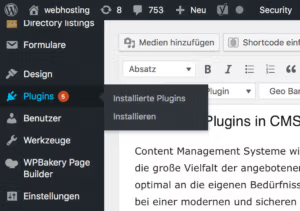
While smaller faith communities have been present on the WWW for a long time, the large faith communities have only recently discovered the WWW for themselves. There are also more and more parishes that set up their own website and distribute current information on it and even make their monthly church newspaper available in online format. The classic method of dropping the church bulletin in the mailboxes of parishioners is nevertheless a path that continues to be followed. However, the WWW is a good way to announce changes at short notice. This is very important, especially in this day and age, as it happens from time to time. It also gives the church congregation a little more flexibility in their planning and avoids unnecessary trips by the faithful to find out at the venue that the event has been cancelled for some reason. A very useful domain extension that a church or a faith community can use for itself is the domain extension .church.
Award guidelines
The domain extension .church is intended only for church congregations or faith communities and for the organizations directly associated with them. It is a very well understandable domain extension worldwide, because the word church means church translated from English. No company and no private person are entitled to the registration of this domain extension.
Use and meaning
The use of the domain extension .church is not widespread, but still of utmost relevance for all those who use this domain extension for their website. It is mainly smaller faith communities that resort to this domain extension for their websites. The large faith communities are organized differently. In Germany, it is true that a large number of church congregations now have their own websites. However, this information can usually also be read on the website provided with a national or international domain extension. Outside of the religious communities, the domain extension .church has no meaning at all - except that everyone can immediately recognize that it is a church community that has registered the website.
Registration period of the domain
Minimum and maximum length
Transfer to the Premium Provider
Change of ownership (registrant)
Provider change possible
Whois update possible
Whois Privacy Protection
Name Server Update
Domain Expire (end of term)
Deletion immediately
Umlauts possible
Restore after deletion possible







